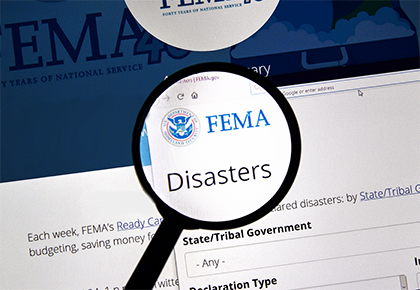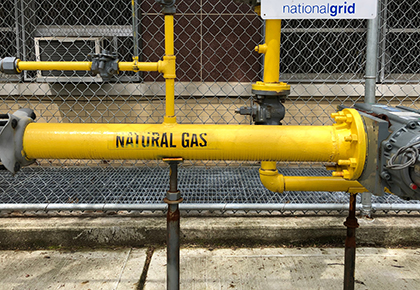-
11 home safety tips you should know
Don’t make it easy for criminals to get into your home. These 11 common sense tips will help homeowners improve the security of their property and make it safer for their families. -
How to Protect Your Condo Corporation From Cyberattacks
When it comes to cyberattacks, you may be under the assumption that your condo corporation is flying under the radar. But you’d be dead wrong. In fact, as a small business, your corporation may be at greater risk of being targeted than ever before. -
Potted Plants are Not Ashtrays
It seems innocent, but a surprising number of balcony and backyard fires are unintentionally started by disposal of smoking material in a potted plant or planter box. In a condominium environment this can have, and has had, disastrous consequences. And it's not just a summertime problem. -
Preventative Roof Maintenance is Crucial to the Sustainability and Longevity of Your Roof
We can all agree there are many important elements to a housing structure, but your roof is probably the most important. Changing temperatures, snow accumulation, large amounts of rain, ice dams and high winds can all cause major damage to condominiums, townhomes and single-family homes. These harsh weather conditions can create all sorts of problems, from minor leaks to major cave-ins that can cost a condominium corporation thousands to repair. -
-
Seven Tips for Preparing an Effective Annual Budget
Proper condominium management depends upon the annual budget for both short- and long-term financial planning. It’s important to follow some guidelines to ensure the success of the community and protect the investment of the owners. -
What Your Condo Corporation Needs to Know About the Legalization of Recreational Cannabis
The Canadian Senate passed Bill C-45 , known as the ‘Cannabis Act’, in June 2018 which legalized the recreational use of cannabis across Canada. The first G-7 country to do so! When Bill C-45 goes into effect on October 17 th , Canadians will be able to purchase, consume and grow up to four cannabis plants, as well as make cannabis-containing products at home. -
Florida HOA Laws 2020
Learn more about which Florida HOA laws passed in 2020, and how these new bills will affect your community. -
Florida Phase 3 Guidlines for HOAs and Condos
Get the latest Florida phase 3 property management guidelines to ensure your association is compliant. -
Local Law 152: Updated Requirements for Boards and Buildings
Is your building prepared for Local Law 152 gas piping inspections? FirstService Residential recommends getting ahead of schedule to avoid unforeseen deficiencies and costly fines. -

FISP (Local Law 11) - Understanding Cycle 9 Requirements in NYC
FirstService Residential has invested substantial resources to facilitate each of our managed properties with facade inspections and is here to help you navigate the many intricacies of FISP. -
4 HOA Strategies to Cut Costs and Maintain Assessments
There are valid reasons to raise assessments, but in some cases, you may be able to go a different route. Here are four strategies to save your HOA money and keep assessments stable. -
Don’t Be the HOA Bad Guy: 4 Proven Policy Enforcement Tips
Enforcing HOA policies is nobody’s cup of tea, but having good policy enforcement in place helps improve the resident experience and elevates your reputation. Follow these 4 principles for healthy policy enforcement: -

Market Trends & Best Practices: Property Insurance for Boards & Building Owners in 2021
Around the world, the property and casualty insurance industry experienced record losses from 2016 to 2019, and consumers are now feeling the effects on both a macro and micro scale. -

Mitigating Board Liability & Personal Exposure – Part One
A capable management company will enforce procedures and invest in technologies that help limit legal liability for the condo or co-op, and also mitigate board member personal exposure. -

Automating Compliance & Inspections for Multifamily Buildings in NYC
Robust automation software can help boards and building owners in New York City satisfy local law compliance deadlines and inspection cycles. -

Mitigating Board Liability & Personal Exposure – Part Two
Policy exclusions introduce increased risk to the board and often render a contractor’s policy meaningless. Properly vetting a contractor’s insurance is critical. -

Ask the HOA Insurance Experts: Why are Premiums Spiking by 30%?
Insurance premiums are on the rise. Find out why the markets are hardening and find the right coverage for your Arizona association. -

New York’s Climate Mobilization Act | Frequently Asked Questions
FirstService Residential helps condo and co-op boards navigate CMA compliance, avoid costly fines and identify incentive programs that reduce the cost of building upgrades. -

Local Law 97 Updates: Building Energy Grades & Emissions Compliance
Local Law 97 impacts roughly 50,000 buildings across the city, a majority of which are multifamily residential properties. -

Understanding flood insurance in NYC for condos and co-ops
The rising cost of flood insurance and forthcoming changes to FEMA flood maps is a topic of discussion for condos and co-ops in the New York City area. -

New York City Council Extends Local Law 152 Inspection Deadlines for Boards & Building Owners
As of November 2021, the New York City Council has extended Local Law 152 gas pipeline inspection deadlines for boards and building owners through June 30, 2022. -

The 2022 Florida Legislative Session And Why It’s Important For Community Associations
On January 11, state lawmakers will assemble for the annual 60-day legislative session. This session will cover a list of key issues and promises to be an active one for community associations for two particular reasons: the impact of the collapse of Champlain Towers South in Surfside and the skyrocketing cost of property insurance. -

FAQ: How New York City’s COVID Vaccination Requirement Impacts Boards & Building Owners
As of December 27, 2021, New York City’s Department of Health requires building workers who perform in-person work to show proof of vaccination to their employer.